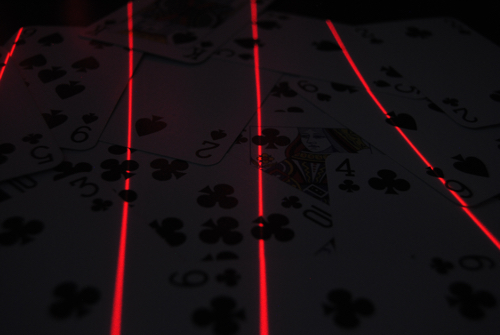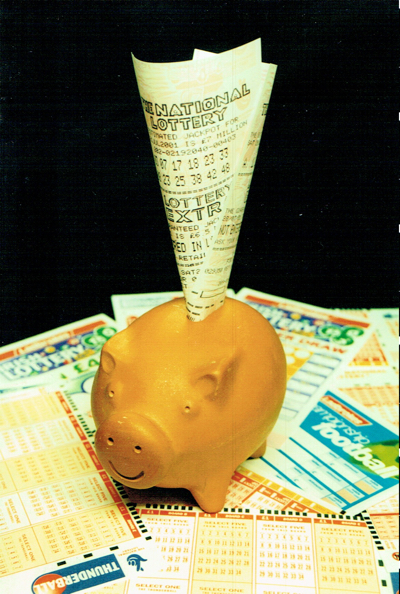Addictions
 Gambling
Gambling

Everyone daily gambles in some way or another. We take a risk when we make a choice; it may not be quite what we want, but we will chance it anyway. Even crossing the road can be a gamble sometimes. The only time when we do not gamble is when we stay at home, in bed. Even people who would not normally consider themselves to be gamblers will almost daily make wagers like, 'I bet this' or 'I bet you that'. Gambling is all about risk taking, and it is part of all our lives.
In a * BBC News report, in Jan 2020, entitled "Problem Gamblers- Why do people become addicted?" they reported "every day we engage in activities offering both a potential risk and a potential reward. We are motivated to take these risks by the release of dopamine, in our brains". They went on further to report, "Risk-taking can help to advance the human race when it leads to entrepreneurship, innovation and enhanced creativity. But problems can arise when an increased desire to take risks causes harm."
Gambling is often rooted in the desire to accumulate more, especially money, and some people see it as a way out of their poverty. In so many countries around the world, it is the invariably the poorest who spend the most on gambling in relation to their income.
This BBC report further says "Most people can enjoy placing an occasional bet, even if it means they lose some money. But some become problem gamblers, where the activity disrupts or compromises their lives and those of their families. In 2016, the Gambling Commission estimated there were up to 340,000 problem gamblers in the UK, with many more individuals at risk."
Extreme gambling is recognised as a disorder by the World Health Organization.
Some of the most popular gambling habits in the UK:
- Electronic gambling machines
- Internet gambling
- Horse/Dog racing
- Sports/Pools
- Bingo/casino gambling
- Lotteries - National, Health, Postcode
- Scratch cards
- Amusement arcades
Some gambling schemes offer the chances for the individual to make a million:
- Super Jackpot/Powerball Jackpot
- EuroMillions
- National Lottery
- Health Lottery
- Roulette/Black Jack/Casinos
** Research study done by NatCen in 2012 found that, in England & Scotland:

"The last decade has seen many changes in the British gambling landscape. The most notable of these include the growth in the availability of remote gambling (particularly via the internet), the introduction of (the then-called) ‘fixed odds betting terminals' into most bookmakers, an increase in the prominence of poker (both online and offline) and the introduction of online betting exchanges."
"Traditionally, gambling in Great Britain was commonly available in a variety of environments including those dedicated primarily to gambling, for example, betting shops, casinos, bingo halls, amusement arcades. With changes like the introduction of the National Lottery Draw, gambling activity is also now present in environments where it is just one of many activities that can be done; for example, buying lottery tickets or scratchcards in supermarkets, post offices, petrol stations and so on."
It went on to identify, "Most types of gambling can now be engaged in remotely via the internet, interactive television, and/or through internet-enabled mobile phones. The range of activities that can be played online vary from playing roulette or slot machines at an online casino, to buying lottery tickets using a mobile phone, or betting on a horse race via interactive television. In short, gambling is a more widely available product now than it was ten or 20 years previously."
It's reported that gamblers, are:
- Five times more likely to be male than female
- More likely to be unemployed than in work, studying or retired
- Most likely to be aged 25 to 34 (if male)
- More likely to be from a black or other minority ethnic background than from a white or Asian background (on a three-year view)
- More likely to indicate signs of mental ill health
- More likely to indicate signs of low wellbeing
Source: Gambling Commission, BBC, NHS England
Some worrying headlines from 2020
"Report shows betting industry's reliance on problem gamblers- The Guardian, Jan 2020 The dependence of the UK gambling industry on high-spending VIPs, customers who are disproportionately likely to be addicts, has been laid bare in a secret report obtained by the Guardian. The Gambling Commission is considering whether to ban VIP schemes in Britain after collecting data from betting firms, including one that took 83% of all deposits from 2% of its customers. The report, which has emerged as the government prepares to review gambling legislation, reveals for the first time the extent to which the industry relies on VIP schemes.
A gambling suicide EVERY day: Shocking report finds 2m families blighted by problem gambling and 50,000 CHILDREN are addicted- The Mail, July 2020 Problem gambling is causing about one suicide every day, a shocking report concluded last night. The House of Lords review found that betting blights the lives of two million Britons, with 50,000 children now hooked.
Around 300,000 people are addicted – each harming six loved ones through crime, domestic violence, family breakup and lost jobs. The 200-page report "Gambling Harm, Time for Action" criticised Labour's 2005 Gambling Act, which liberalised betting laws. It also highlighted the rise of smartphones that allow wagers at the touch of a button.
Signs that somebody may have a problem include feelings of anxiety or stress around their gambling habit, betting more than they can afford to lose, and gambling ever larger amounts of money to feel the same "high" as before. Source: Gambling Commission, BBC, NHS England.
Like so many of the other addictions the gambler is often looking for a release from boredom, something to look forward to, or for a thrill or the excitement. The roots are often, like so many addictions, in low self-esteem.
But help is available! Here are some self help tips: (Source: NHS UK)
Don't:
- View gambling as a way to make money - try to see it as entertainment instead
- Bottle up your worries about your gambling - talk to someone
- Take credit cards with you when you go gambling
- Pay important bills, such as a mortgage, on payday before you gamble
- Spend more time with family & friends who don't gamble
- Deal with your debts rather than ignoring them - National Debtline/CAP